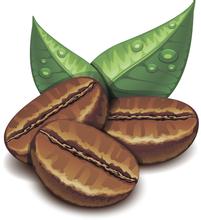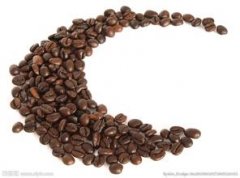African Coffee with unique character A brief introduction to the History and Culture of the Origin and Development of Rwandan Coffee

Rwanda, located in the southern equator of central Africa, is a landlocked country, bordered by Tanzania to the east, Burundi to the south, the Democratic Republic of the Congo to the west and Uganda to the north. The territory is mountainous, known as "the country of a thousand hills". The divide between the Congo River and the Nile River runs through western Luanda from north to south.
Rwanda's economy is dominated by agriculture. The population engaged in agriculture and animal husbandry accounts for 92% of the country's population. The main cash crops are coffee, tea and cotton. Because it is an agricultural and animal husbandry country, coupled with the loss of many young workers caused by the genocide in 1994, it is a huge blow to a country that is not already rich, and Rwanda is still a backward country. After the civil war, Rwanda has intensified its development in the cultivation and trade of coffee. In recent years, the Rwandan government has also taken positive measures to set up coffee production cooperatives in various places to give technical guidance and financial support to farmers. It is expected that the domestic economic development can be promoted to a certain extent through the coffee industry. Because of the excellent performance of Rwandan coffee in recent years, it is becoming more and more popular in the international market.
Rwanda has been growing coffee since colonial times. Although the crops are mainly coffee, the quality of coffee produced in Rwanda is not outstanding, and its status in the coffee world is low, and few people pay attention to it. Most of the coffee varieties grown in Rwanda are bourbon. Rwanda, known as the "country of a thousand hills", has a high-altitude mountain environment, fertile volcanic soil and abundant precipitation, and has a climate conducive to the growth of coffee trees. The advantages of varieties and excellent natural conditions should have produced high-quality coffee, but why the quality of its coffee performance is not satisfactory? The reason lies in the later stage of processing. Improper handling will reduce the quality of coffee and sacrifice a lot of good flavor in vain. Harvesting, planting, treatment, grading, transportation and other links will directly affect the quality of raw coffee beans, in which the lack of control in a certain link will become a stumbling block to good coffee.
The coffee fruit needs to be transported to the processing plant as soon as possible after picking, but due to the lack of domestic facilities, it is unable to deal with the fruit at the first time. The fruits are piled up after being picked, which will continue to develop and accelerate mildew and decay due to lack of ventilation. Rotten fruits will affect the quality of coffee and show defective flavor.
In recent years, Rwanda has made great progress in the production and processing of coffee. First of all, coffee fruits are picked manually; coffee production cooperatives are set up all over the country to provide technical guidance to coffee farmers; coffee farmers send them to coffee processing stations for cleaning and screening as soon as possible after picking, and select mature and high-quality coffee fruits for processing.
Most of the coffee in Rwanda is washed. The water washing method will first wash and flotation the ripe coffee fruit, then remove the exocarp, pulp and part of the pectin layer, then send the coffee into the fermentation tank, remove the remaining pectin layer and then send it to the drying ground for drying treatment, so that the water content reaches about 13%. The coffee in the picture above is dried on an African shed to avoid the smell of dirt. It is more ventilated and mildew can be avoided. During the drying process, coffee farmers will also turn the beans regularly to make the drying more evenly, and at the same time will pick out the beans of poor quality and discard them.
With the improvement and improvement of Rwandan coffee in various aspects, its quality has also made a qualitative leap. In the 2008 COE contest held by the American Fine Coffee Association SCAA, Arnomega, Rwanda, beat the Blue Mountain 1 of Jamaica and Mantenin G1 of Sumatra to defend the title. With its excellent quality, Rwandan coffee has won a place in the coffee world and won more attention.
The picture above shows Rwanda raw beans, bourbon species and water washing treatment. The picture below shows cooked beans, light to medium baked, round and plump, with beautiful beans.
When it comes to the flavor of Rwanda, I am ashamed of the biased perception of Rwanda in the first place. I still remember that when I first came into contact with coffee, smell training was very resistant to No. 3 in the 36-smell bottle, and I even felt nauseous when I smelled it. So subjectively, I always like to make up the taste similar to grass automatically for the smell of green peas. Due to the lack of experience in tasting and production, we will subjectively list the grass and lavender-like aroma that Rwanda has as its own conflicting flavor. So when the production of Rwanda smelled its individual lavender fragrance, the coffee glutton shrank back to its stomach. However, with the improvement of taste and production experience, there is a new understanding of Rwanda with its individual fragrance.
Before sharing this article with you, in order to have a more objective evaluation of Rwanda, it is specially evaluated by cup test. Well-baked water-washed Rwanda has a dry aroma of roasted peanuts, accompanied by spice and wood aromas. The fragrance of wet lavender and green grass is strong. After the temperature drops a little, the sweetness of fruit increases, and the smell of lavender decreases. The palate is clean and mellow, with a good finish and a long-lasting aroma. The acidity is soft and the overall feeling is full and stretched.
Rwanda is like a friend with a distinct personality in life, at first contact will stay away because of the other person's too distinct personality, but after really getting to know each other, he will be attracted by his unique temperament. Rwanda is such a guy with great personality.
Since the 1920s, Arabica coffee grown in Rwanda has been famous for its unique fruit sweetness and rich grass aroma. In recent years, the Rwandan government has taken positive measures to vigorously promote coffee production, set up coffee production cooperatives in various places, and give technical guidance and financial support to farmers, so that coffee production has made considerable progress.
There are about 33000 hectares of coffee plantations in Rwanda, with 500000 people engaged in the coffee industry. With the good natural conditions of high altitude and fertile volcanic soil, the country's fertile soil and suitable climate contribute to plant growth, and coffee trees seem to be driven or forced to grow upward, or because they grow too fast to produce the best coffee beans. The beautiful country of thousands of hills Rwanda has a long and rich culture for growing highland coffee, mainly high-quality Arabica coffee. Rwanda is the only country in the world that can fully enjoy the harmony between soil, altitude and climate. In this unique growing environment, high-quality coffee from Rwanda has a distinctive taste and aroma. Bourbon coffee grown in Rwanda is one of the original varieties of Arabica coffee.
Rwanda water washing method
The market for Rwandan coffee:
Rwanda coffee is absolutely high quality in the form of washed Arabica beans. As far as Africa is concerned, its coffee industry is remarkable because the country thrives mainly by producing the best possible coffee beans. Coffee from Rwanda is becoming more and more popular in the international market.
The mission of the Rwanda Coffee Association is to manage and supervise the operation of the coffee industry in Rwanda from production to sale. The recently revised mission focuses on policy formulation and implementation, with more emphasis on the need to improve the professionalism of the coffee industry and to increase marketing efforts. Since the establishment of the Rwanda Coffee Association, it has promoted the Rwandan coffee culture and promoted the influence of Rwandan coffee.
But in any case, the soft and full-bodied taste of the country's coffee is great.
Rwanda is a small African country, and the local people are relatively poor, but it produces straight and very good coffee. Unlike its neighbors Kenya and Ethiopia, Rwanda's coffee is mainly round bourbon. The taste is not as prominent as Ethiopia and Kenya, but the evenness is excellent.
Karnogi coffee in Rwanda is planted and harvested by local small farmers and washed by Gitesi Washing Station. Although this is a relatively young coffee processing plant, it has always been famous for producing high-quality Rwandan coffee because of its responsible working attitude, good treatment equipment and standard processing procedures. Rwanda Karnogi coffee won the first Arward Winnner on CoE in 2013. This coffee bean shape is a typical bourbon shape. Round beans, glittering and translucent, the treatment is very clean, the residual silver skin is very little, the color is green, suitable for medium and shallow baking, beans for 10 seconds after explosion.
Important Notice :
前街咖啡 FrontStreet Coffee has moved to new addredd:
FrontStreet Coffee Address: 315,Donghua East Road,GuangZhou
Tel:020 38364473
- Prev

One of the best coffees in the world Rwandan coffee Flavor Aroma Description Introduction
Since the 1920s, Arabica coffee grown in Rwanda has been known worldwide for its distinctive fruity sweetness and intense grassy aroma. In recent years, the Rwandan government has taken active measures to vigorously promote coffee production, establishing coffee production cooperatives in various places, giving farmers technical guidance and financial support, so that coffee production has a good chance.
- Next

A brief introduction to the Market Price of soft and fragrant Rwandan Coffee
Bourbon coffee grown in Rwanda is amazing for its sweet fruit, full-bodied, unrestrained and lingering aftertaste. This coffee has a delicious, citrus sweetness and a deep chocolate color. Rwanda bourbon is known as the Bourbon that captures the whole African charm and condenses it in a cup.
Related
- Detailed explanation of Jadeite planting Land in Panamanian Jadeite Manor introduction to the grading system of Jadeite competitive bidding, Red bid, Green bid and Rose Summer
- Story of Coffee planting in Brenka region of Costa Rica Stonehenge Manor anaerobic heavy honey treatment of flavor mouth
- What's on the barrel of Blue Mountain Coffee beans?
- Can American coffee also pull flowers? How to use hot American style to pull out a good-looking pattern?
- Can you make a cold extract with coffee beans? What is the right proportion for cold-extracted coffee formula?
- Indonesian PWN Gold Mandrine Coffee Origin Features Flavor How to Chong? Mandolin coffee is American.
- A brief introduction to the flavor characteristics of Brazilian yellow bourbon coffee beans
- What is the effect of different water quality on the flavor of cold-extracted coffee? What kind of water is best for brewing coffee?
- Why do you think of Rose Summer whenever you mention Panamanian coffee?
- Introduction to the characteristics of authentic blue mountain coffee bean producing areas? What is the CIB Coffee Authority in Jamaica?

